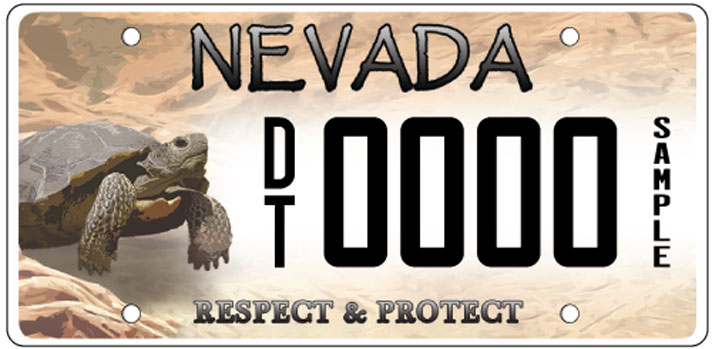Proceeds from the sale of the special Nevada desert tortoise license plate will benefit conservation efforts of the species.
If you are a fan of Nevada’s state reptile, the desert tortoise, you can show your affection by ordering a special desert tortoise license plate from the Nevada Department of Motor Vehicles. Proceeds from the sale of the license plate, which features an image of the state reptile prominently on the plate, will go toward the Mojave Max Education Program, which educates more than 5,000 school children every year on the importance of conservation as well as facts about the desert tortoise, desert tortoise biology, and the life cycle of the reptile.

Nevada Department of Motor Vehicles
The special Nevada desert tortoise license plate is now available for order. Proceeds from the sale will benefit conservation efforts of the species.
Mojave Max was a desert tortoise who lived at the Red Rock Canyon National Conservation Area in Nevada. In addition to helping educate children of Nevada, he was the representative of the Clark County Desert Conservation Program, and the West Coast’s answer to Pennsylvania’s Punxsutawney Phil, the sometimes unreliable mammalian weather protector.
The special plate costs just $62 for a standard plate and $97 for a personalized plate, with $25 of that going to support desert conservation measures. More information is available on the Nevada Department of Motor Vehicles website.
Desert Tortoise Will Be Harmed If Nevada Public Lands Bill Becomes Law, Conservation Groups Say
Desert tortoises, a threatened species, range from the Mojave and Sonoran deserts in Southern California and can also be found in Arizona, Nevada, as well as in areas in Mexico. It grows to about 8 to 10 lbs. and eats mostly weeds and leafy weeds in the wild. The desert tortoise is a protected species and it is speculated that more desert tortoises can be found in captivity than in the wild.


